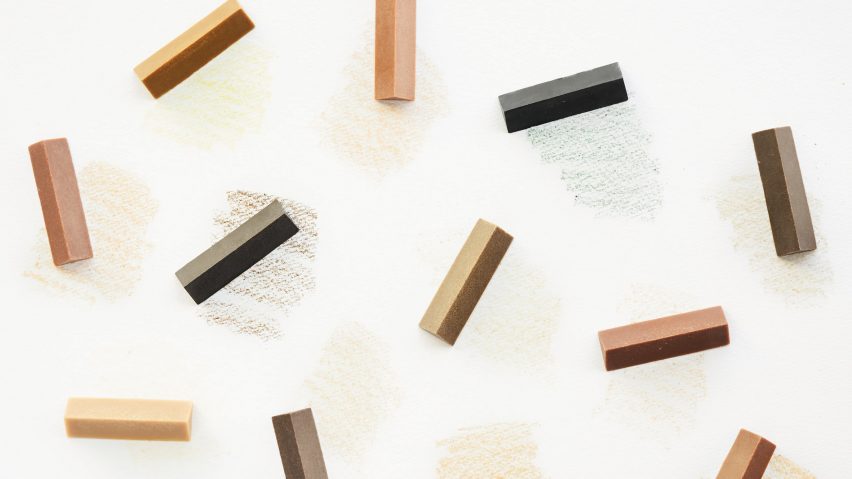
Forest Crayons reveal the spectrum of colours within Japanese wood
Design studio Playfool has created a set of sustainable crayons made entirely from Japanese wood, which was designed to celebrate the unseen colours within a forest's trees.
Called Forest Crayons, the project is shortlisted for this year's Dezeen Awards in the product design category.
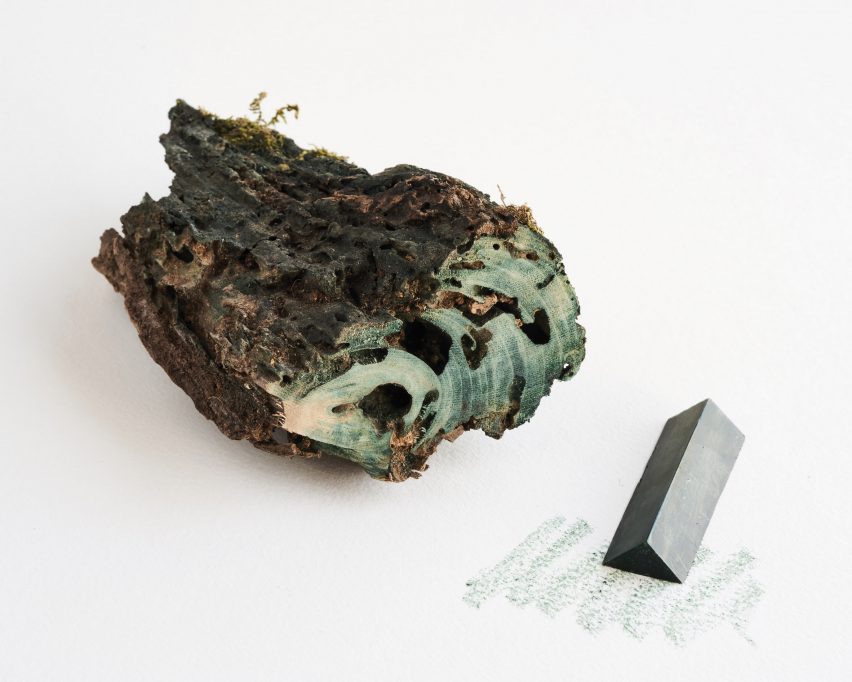
The coloured crayons are triangular in shape and made entirely from wood salvaged from Japanese lumberyards.
Available in a variety of hues, from cedar and cypress to walnut and oak, the project aims to celebrate the natural pigments found in wood.
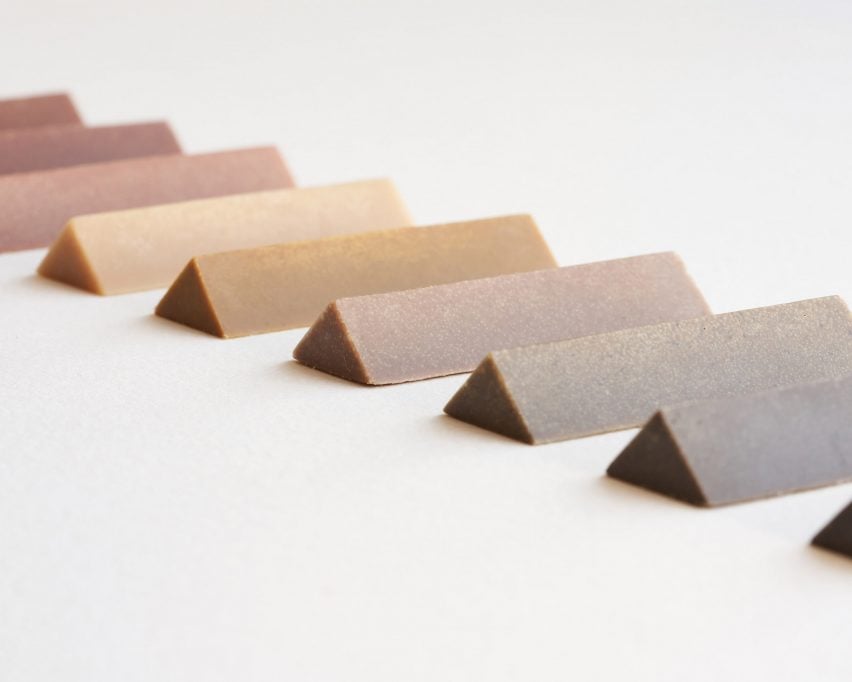
"We started off wanting to develop a way to create with wood like never before," Playfool founders Daniel and Saki Coppen told Dezeen.
"After discovering the under-appreciated beauty of wood’s natural hues, we were motivated to achieve our goal by transforming wood into a drawing tool."
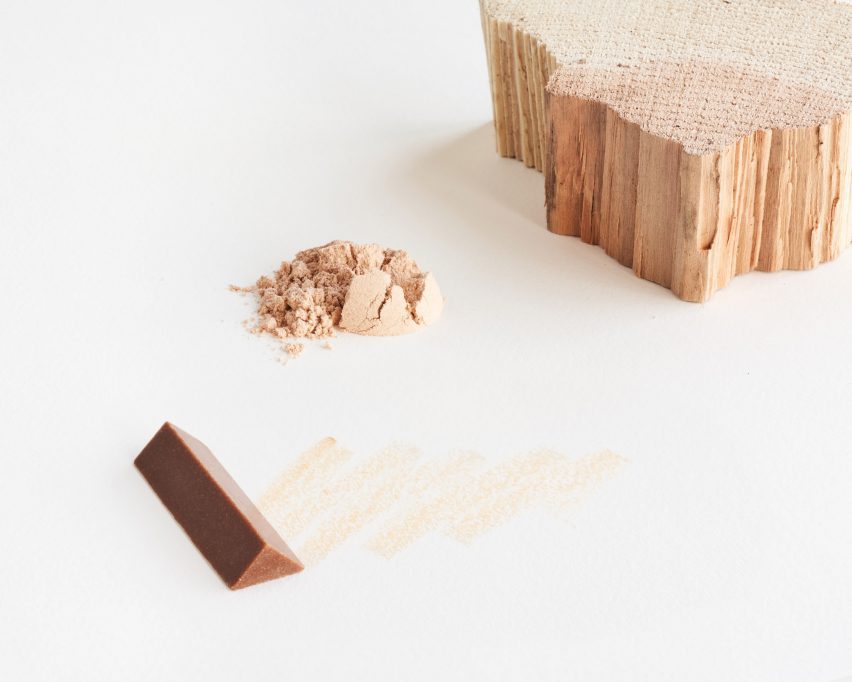
The crayon prototypes were made by finely grinding down raw wood and combining it with natural wax, derived from the Japanese Hazenoki tree. The mixture was then poured into a crayon-shaped silicon mould.
"We were fascinated by how reworking the material into a formless substance allowed us to appreciate it not for its shape or strength but purely for its colour," the studio said.
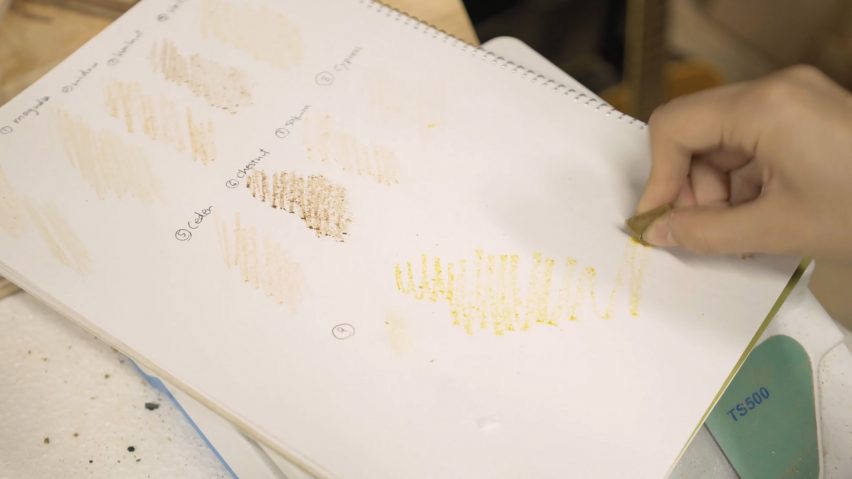
Playfool sourced the wood from a lumberyard in the forested city of Hida, which is in Japan's Gifu prefecture.
"At the lumberyard, we were amazed at the vast spectrum of hues the forest has to offer and immediately understood how the colour of wood is so much more than simply brown," the designers explained.
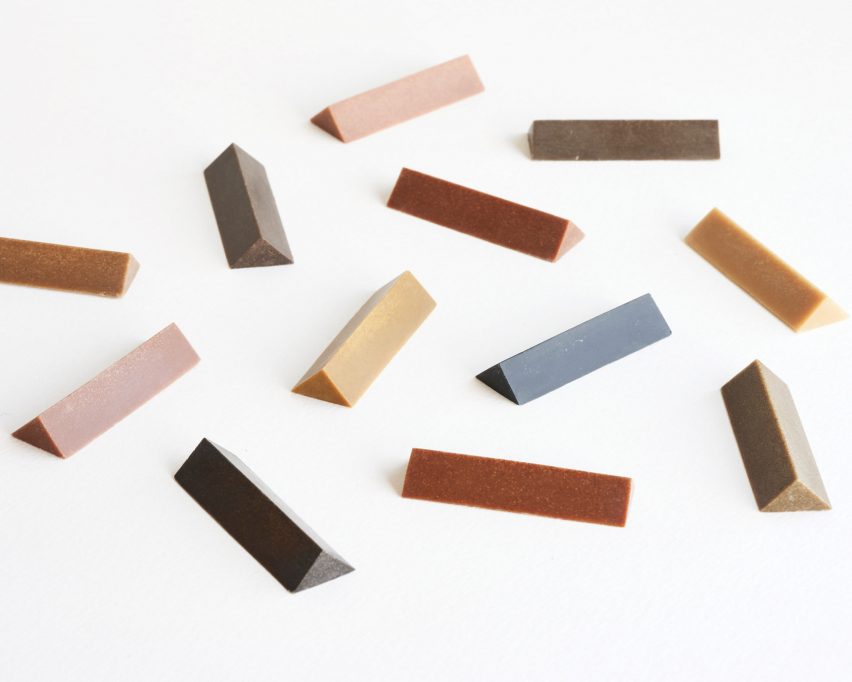
The project began as part of a residency programme called the Wood Change Camp that focusses on finding alternative applications for Japanese wood, as two-thirds of Japan is covered in forests.
"In order to maintain the health of Japan’s forests, trees must undergo a continuous cycle of harvesting and replanting to lower the risk of disasters such as landslides," the studio said.
"However, due to increasingly cheap import costs, the country must deal with an abundance of wood, and although some of it is used for architecture or furniture, much of it is still left unappreciated," the studio added.
Through the project, Playfool sought to celebrate the richness of colours found in Japanese wood while contributing to the healthy maintenance of the country's trees.
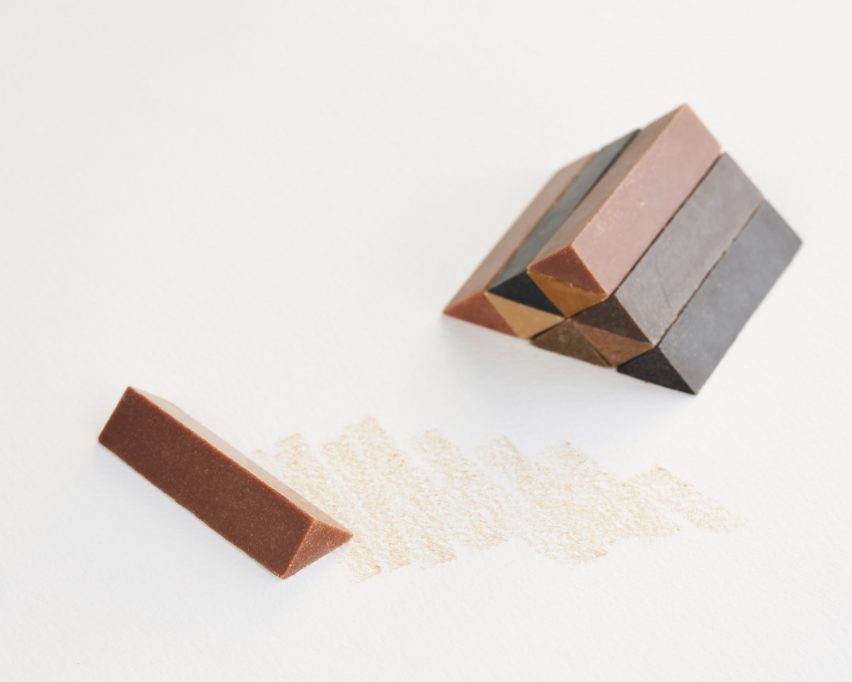
The project was informed by the notion of Responsible Consumption and Production, one of the United Nations' 17 Sustainable Development Goals that were established in 2015 in response to the climate crisis.
"Forest Crayons act as a powerful communication tool in promoting awareness for Japan’s forests," concluded the designers.
"By emphasising this unexpected aspect of wood, we hope the project can reinvigorate a passion for nature and inspire people to continue maintaining and caring for the forests for future generations."
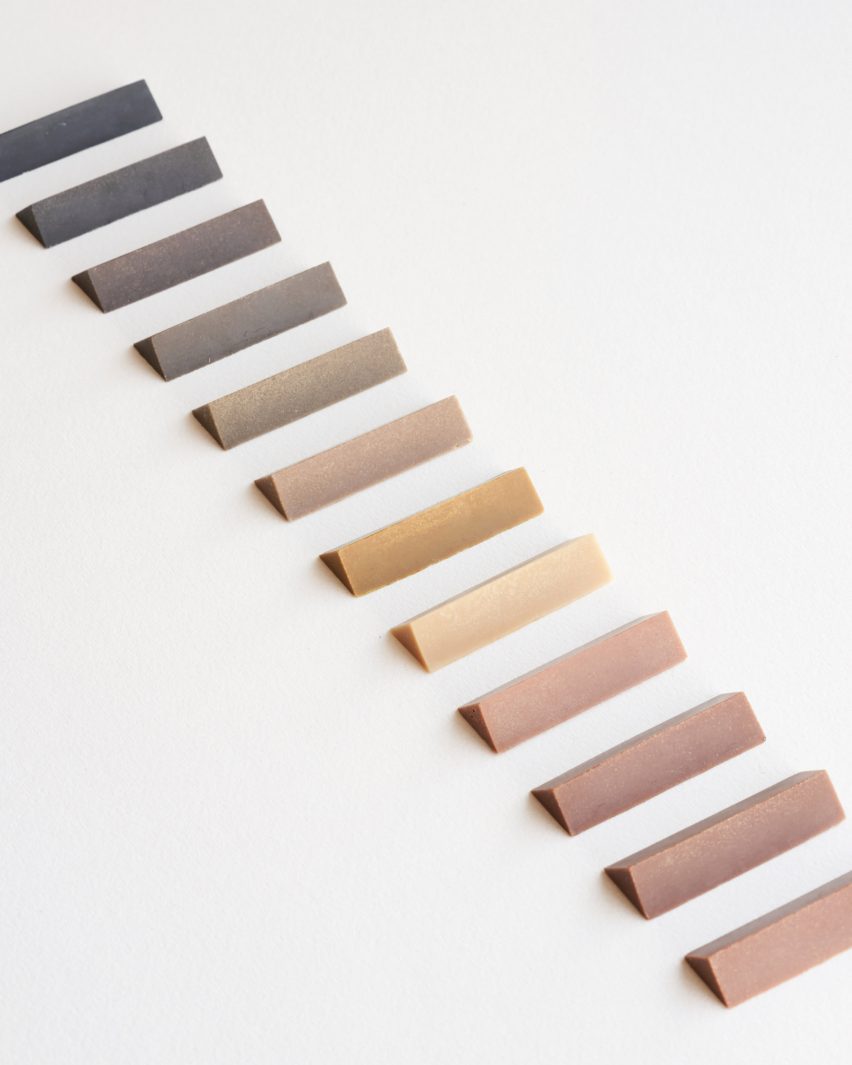
Playfool is a London and Tokyo-based design studio that aims to take a play-based approach to design and engineering.
Other projects shortlisted in 2021 Dezeen Awards include House of Nature, an all-timber school building in Denmark by Aarhus-based studio ReVærk.
The photography is by Shot by Kusk.